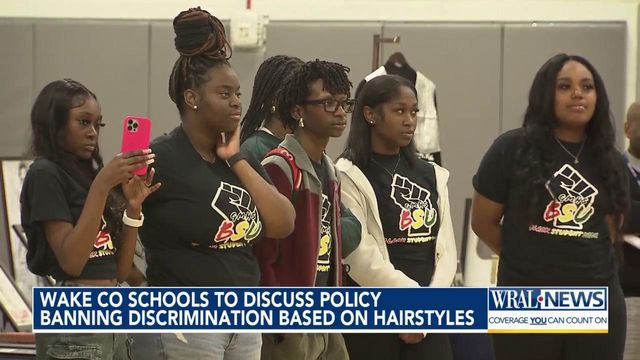Ending hair discrimination: Wake schools discuss implementing CROWN Act
A Wake County school board committee wants to end unfair treatment of students with certain hairstyles.
The policy committee discussed Tuesday changing its dress code to ensure students can wear hairstyles that express their "individuality and culture."
Those protections are commonly known as the CROWN Act, where CROWN stands for “Create a Respectful and Open World for Natural Hair."
It's not a state or federal law, but many public agencies – including the Durham school board and Raleigh city council – have adopted policies protecting students or employees from hair discrimination.
The CROWN Act movement applies for discrimination against any person’s hairstyle, but hair-based discrimination is an issue many Black women deal with specifically.
Hair stylist Lisa Smilez told WRAL News in an interview that some of her own clients experience discrimination from employers about their hair.
"You always don't have to conform to straightening your hair and damaging it just because you have to appear to look a different way," Smilez said. "Your hair is beautiful each way."
Board vice chairwoman Monika Johnson-Hostler told board members on Tuesday that it was years before her daughter accepted her natural hair.
"18. That’s how long it took her to be OK with not wearing her hair straight, which is not her natural hair," Johnson-Hostler said.
Durham Public Schools has observed "CROWN Act Weeks" for the past several years to celebrate Black women’s natural hair.
Wake leaders are looking at adopting a dress code change that mirrors Durham Public Schools' CROWN Act policy.
The proposed change to the dress code means kids could wear braids, twists, cornrows, Bantu knots, head wraps and other styles.
Certain sports or ROTC programs may still have restrictions.
The policy committee plans to continue discussing the dress code change next month.
The change is expected to go up a vote later this spring.












